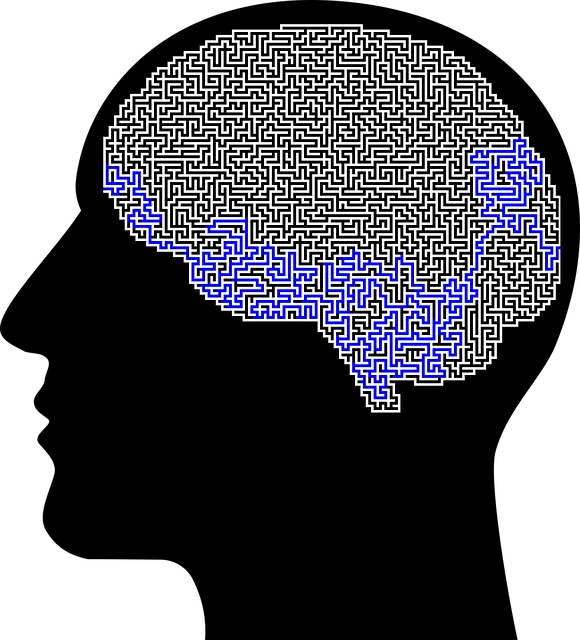Cultural competency is a cornerstone of high-quality mental healthcare, particularly in diverse communities like Kaiser Louisville. By understanding and respecting varied cultural backgrounds, healthcare providers can offer tailored, effective services, addressing barriers to build trust and encourage open communication. Kaiser Louisville's comprehensive training equips providers with skills to integrate traditional healing methods into evidence-based treatments, improving patient engagement and outcomes. Their innovative approach ensures culturally sensitive mental health services, accessible through their programs, cater to diverse communities' unique needs. Evaluating these initiatives through feedback and tracking treatment outcomes refines services, making it easier for underserved populations to access the support they need, like how to get mental health services through Kaiser Louisville.
Cultural competency training is vital for healthcare providers, especially within diverse communities. This article explores the significance of cultural competency in mental health services, using Kaiser Louisville as a case study. We delve into designing effective training programs, implementing initiatives, and fostering continuous learning to enhance care delivery. Understanding these strategies can significantly improve access to quality mental health services through Kaiser Louisville, ensuring culturally sensitive practices for all patients.
- Understanding Cultural Competency in Healthcare: Why It Matters for Mental Health Services
- Designing Effective Training Programs for Kaiser Louisville's Providers
- Implementing and Evaluating Cultural Competency Initiatives
- Promoting Continuous Learning and Improvement in Mental Health Care Delivery
Understanding Cultural Competency in Healthcare: Why It Matters for Mental Health Services

Cultural competency is a vital aspect of healthcare, especially when delivering mental health services. It involves understanding and respecting diverse cultural backgrounds, traditions, and beliefs to ensure every individual receives quality care tailored to their unique needs. In the context of Kaiser Louisville, providing effective mental health services requires a nuanced approach that takes into account the cultural diversity of its community.
When it comes to mental health, cultural competency training equips healthcare providers with the skills to recognize and address cultural barriers. This is crucial for building trust and fostering open communication with patients from various ethnic and social backgrounds. By incorporating cultural awareness in practice, mental health professionals can offer evidence-based treatments while considering traditional healing methods, family dynamics, and community influences. Such an approach promotes better patient engagement, improves treatment adherence, and enhances overall outcomes, ensuring that Kaiser Louisville’s services cater to the diverse needs of its patients effectively, including those seeking stress management, depression prevention, and holistic mental health care tailored to their cultural identities.
Designing Effective Training Programs for Kaiser Louisville's Providers

At Kaiser Louisville, designing effective cultural competency training programs for healthcare providers involves a multi-faceted approach tailored to the unique needs of the community and patient population. Given that mental health services are in high demand, integrating strategies that address both clinical proficiency and cultural sensitivity is paramount. Training should encompass a range of topics, from understanding the diverse psychological landscapes of different communities to acquiring practical stress reduction methods that cater to these varied needs.
Engaging workshops focused on social skills training and stress management can empower providers to connect more effectively with patients from diverse backgrounds. By incorporating interactive sessions, case studies, and real-world scenarios, Kaiser Louisville’s Stress Management Workshops Organization ensures that learning translates into improved patient outcomes. Ultimately, this holistic approach not only enhances the quality of mental health services but also fosters a more inclusive healthcare environment where every patient feels understood and supported.
Implementing and Evaluating Cultural Competency Initiatives

Implementing cultural competency initiatives is a vital step toward ensuring equitable access to healthcare services for diverse communities. At Kaiser Louisville, efforts to promote mental health awareness and coping skills development among underserved populations have been met with promising outcomes. These programs aim to bridge cultural gaps by educating healthcare providers on the importance of understanding patients’ backgrounds, values, and beliefs. Through training sessions, staff learn strategies for effective communication, tailoring their approach to cater to individual needs without judgment or bias.
Evaluating these initiatives is crucial to measure their impact and identify areas for improvement. By collecting patient feedback and tracking treatment outcomes, Kaiser Louisville can assess whether the programs effectively enhance emotional regulation and resilience-building within various cultural contexts. This data-driven approach allows for continuous refinement, ensuring that services are tailored to the specific needs of communities, including those seeking mental health support through Kaiser Louisville.
Promoting Continuous Learning and Improvement in Mental Health Care Delivery

Mental health care delivery is a dynamic field that requires continuous learning and adaptation to best serve diverse patient populations. Healthcare providers must stay updated on the latest research, treatment modalities, and cultural competency practices to ensure effective and equitable mental health services. At Kaiser Louisville, for instance, efforts are underway to integrate how to get mental health services seamlessly into the community, addressing barriers such as stigma and access issues.
Promoting continuous learning involves offering regular training sessions, like Stress Management Workshops Organization and Burnout Prevention programs, which equip professionals with tools to manage stress, enhance self-esteem, and improve patient outcomes. By fostering a culture of ongoing education and personal growth, healthcare organizations can create an environment where mental health practitioners feel supported and motivated, ultimately leading to better patient care and satisfaction.
Cultural competency training is a game-changer in enhancing how Kaiser Louisville delivers mental health services. By equipping healthcare providers with the skills to understand and respect diverse cultural backgrounds, these initiatives ensure that every patient receives personalized care. Through effective training programs, continuous learning, and evaluation, Kaiser Louisville can foster an inclusive environment, improve patient outcomes, and facilitate access to mental health services for all. This approach not only benefits individuals seeking help but also enriches the healthcare provider experience, creating a more compassionate and efficient system.






